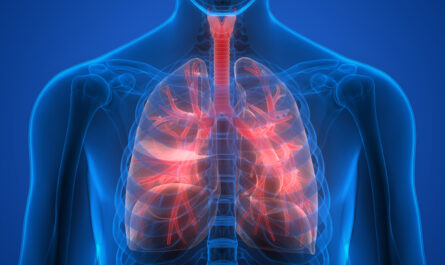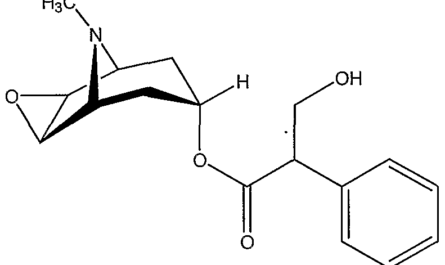Understanding Nutritional Requirements for India medical nutrition
As one of the fastest growing economies in the world, India is experiencing profound changes in its healthcare landscape. With a population of over 1.3 billion people and growing, maintaining good health and preventing illness have become national priorities. Proper medical nutrition plays a vital role in achieving these goals. A balanced, nutritious diet can help manage existing medical conditions and lower the risk of developing new ones. However, nutritional needs vary significantly based on one’s health status. This article explores the specific dietary requirements for some common medical issues in India.
Cardiovascular Diseases and Nutrition
Cardiovascular diseases like heart attacks and strokes remain the leading causes of death in India. Adopting a heart-healthy diet is important for both treatment and prevention. For those with existing heart conditions, it is critical to limit foods high in saturated and trans fats, sodium, and added sugars. These include fatty meats, full-fat dairy, fried foods, canned goods, baked goods, and sugary drinks and desserts. Instead, India medical nutrition should emphasize wholesome carbohydrates like fruits, vegetables, whole grains, and legumes. Good sources of protein like fish, poultry, nuts, and seeds also provide heart-healthy fats like omega-3s. Controlling portions and avoiding overeating are also vital aspects of a cardioprotective nutrition plan.
Diabetes Management through India medical nutrition
India has earned the unfortunate title of being the diabetes capital of the world, with over 70 million cases. For diabetics, meals and snacks must be scheduled, balanced, and moderated in size. Consumption of carbohydrates, in particular, requires careful consideration. Unrefined complex carbs like quinoa, millets, beans, and veggies provide sustained energy while avoiding blood sugar spikes. Protein and healthy fats also balance out high-carb foods. Portion sizes should match individual insulin needs and activity levels. Regular exercise and medication (if prescribed) work synergistically with a diabetic diet plan to maintain normal blood sugar levels. Close monitoring provides diabetics and healthcare providers feedback to tweak nutrition strategies over time.
Dietary Needs for Cancer Patients
Cancer treatment often causes side effects like nausea, lack of appetite, tiredness, and mouth sores that make eating difficult. Nonetheless, nutrition remains crucial during therapy and recovery. Cancer diets aim to provide adequate calories, protein, vitamins, and minerals to nourish the body amid such challenges. Foods that are easy to chew, digest, and tolerate are best. Examples include soft fruits and vegetables, whole grains, eggs, yogurt, smoothies, nut butters, and protein shakes.staying well-hydrated also promotes healing. Those undergoing chemotherapy or radiotherapy may need to avoid raw produce and limit spice due to risk of infection. Close monitoring by a registered dietitian can personalize a nutrition plan suited to an individual’s cancer type and treatment protocol.
Kidney Disease Diet
Chronic kidney disease poses major dietary restrictions to protect failing organs and adjust for dialysis. Patients must control intake of sodium, potassium, phosphorus, and fluids based on lab values. This significantly limits consumption of high-potassium fruits and vegetables plus processed foods high in sodium. Protein sources should be carefully selected to avoid excess toxins processed by kidneys. Healthy options include fish, lean meats, eggs, nuts, seeds and legumes. Complex carbohydrates from whole grains provide sustained energy. Frequent small meals help balance nutrients without overloading the kidneys. Dialysis also requires adjustments based on fluid removed and supplements given.Medical nutrition therapy tailored by a renal dietitian optimizes nutrition within such constraints.
Liver Disease Nutrition
Alcoholic and viral hepatitis call for targeted nutrition interventions. Avoiding alcohol is obviously key. Given the liver’s detox role, foods containing toxins, artificial additives and preservatives are also restricted. High-fat meats burden an inflamed liver, so diets emphasize beans,l entils, lean proteins and plant-based omega-3s from walnuts and flaxseeds. Complex carbs from whole grains fuels the body while sparing extra work for the liver in breaking down simple sugars. Cruciferous veggies containing sulfur compounds aid liver function. Essential vitamins, minerals and herbs in therapeutic doses via supplements or superfoods supports liver recovery. Strict control of conditions like diabetes and monitoring medication interactions become important with compromised liver health.
This overview highlights how medical nutrition therapy optimizes health for different disease states common to India. Registered dietitians play a vital role in working with physicians,patients and their families to customize nutrition based on individual needs, resources, culture and lifestyles. As awareness of nutrition science grows across India,collaboration between healthcare providers and communities will maximize benefits of therapeutic medical diets. Prioritizing nutrition interventions holds promise for improving management of chronic conditions and quality of life in a sustainable, cost-effective manner. With targeted nutritional strategies aligned with each stage of illness,diet proves a modifiable determinant of wellness for India’s population.
*Note:
1. Source: Coherent Market Insights, Public Source, Desk Research
2. We have leveraged AI tools to mine information and compile it.




